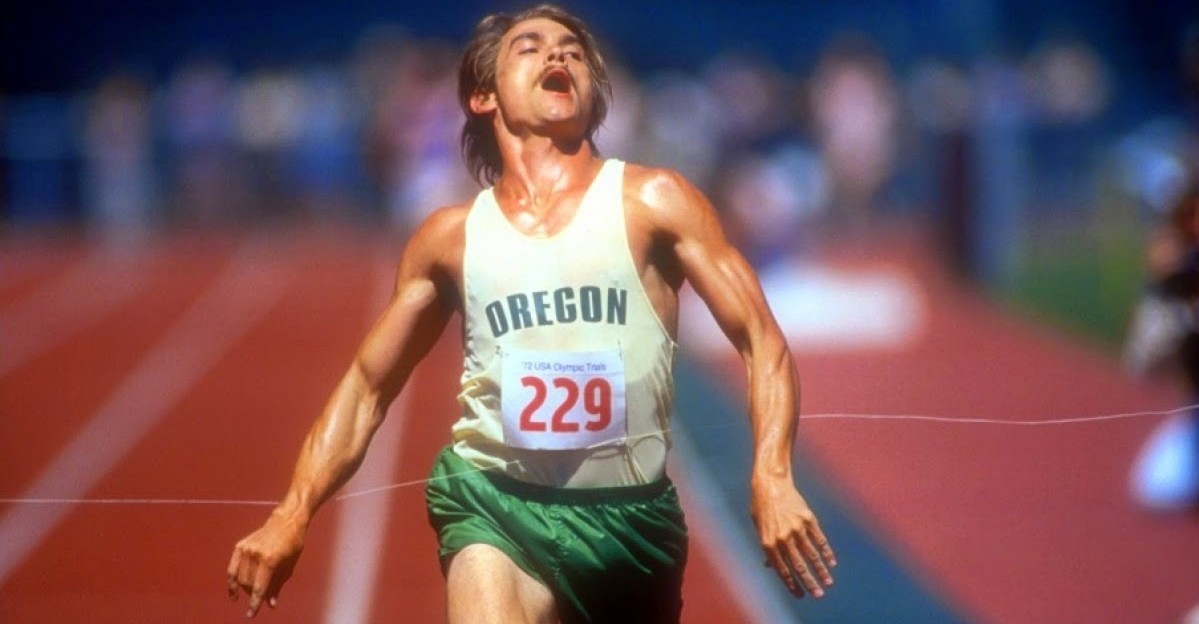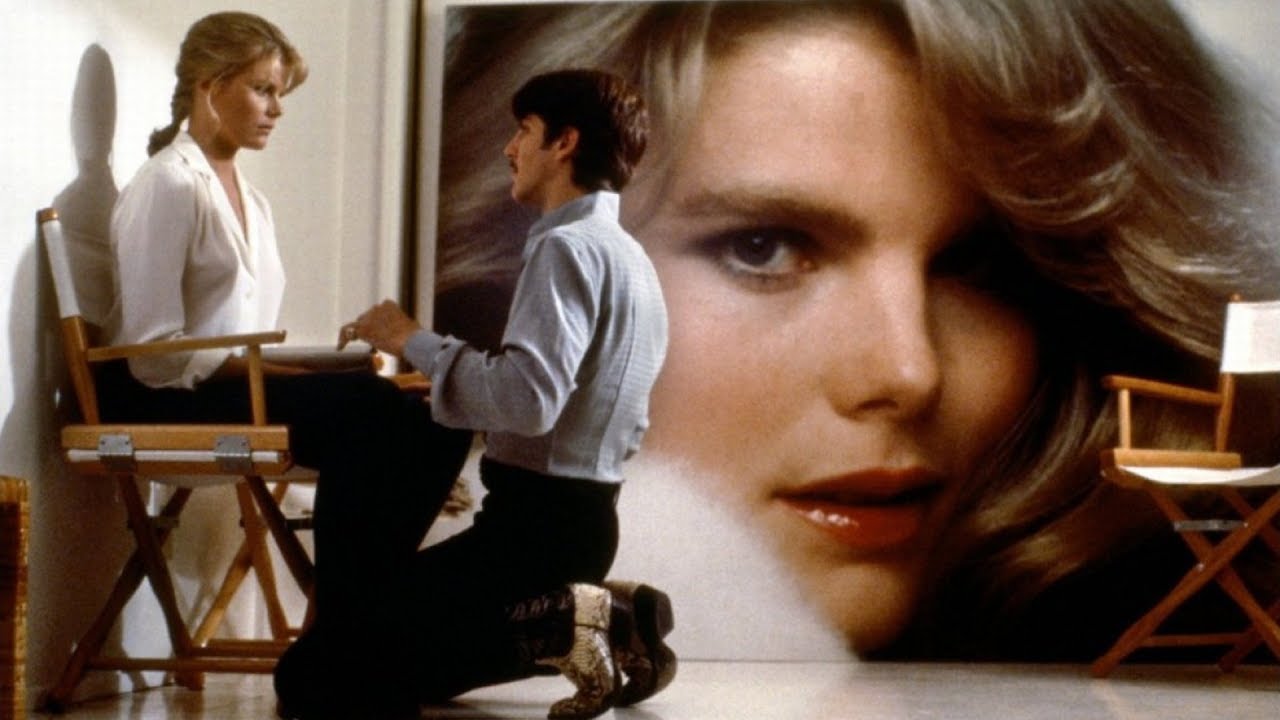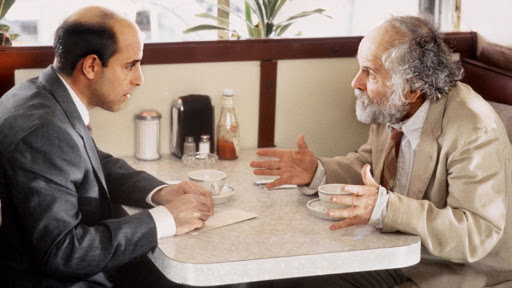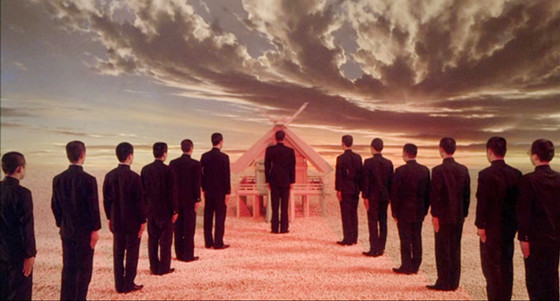5. Without Limits (1998)

Steve “Pre” Prefontaine was an American long-distance runner who competed in the 1972 Olympics. While running for the Oregon Track Club, Prefontaine set American records at every distance from 2,000 to 10,000 meters as he prepared for the 1976 Olympics. He was basically a legend and even though he had a short life, he achieved too much in this time and his story has been a subject of films and books. Here he is portrayed by Billy Crudup under the direction of Robert Towne.
Tom Cruise’s first producing effort “Without Limits” is a strong sports drama that respects its main subject: long-distance running, how sportsmen and their fans see the art of running, and Prefontaine as a man in general. Whether he would have won at the next Olympics, we’ll never know, but what we know in this movie is his personality, which is why the film works so well. It’s not necessarily about winning, unlike some other sports dramas – it’s about understanding the man. The main highlight of the film is especially Donald Sutherland who gives an incredible performance as his trainer Bill Bowerman and their scenes together are just magical. His last scene and also the speech he delivers after the terrorist attacks at the Olympics are some of the most powerful moments of the film because of the gravitas that Sutherland brings to the role. You’ll keep wondering how this man never got nominated for an Oscar.
4. Star 80 (1983)

Dorothy Stratten was a Canadian Playboy Playmate, model, and actress. She was in a relationship with famed director Peter Bogdanovich and even appeared in his films, but her life was cut short when her estranged husband Paul Snider murdered her. Her death inspired songs by Bryan Adams, Red Hot Chili Peppers, and Prism, and also two movies: the first being the Jamie Lee Curtis-starring “Death of a Centerfold” on television, and the second, “Star 80,” which earned critical raves, especially for Eric Roberts’ frightening, creepy performance as the murderer Paul Snider. Critics loved how he portrayed a pathetic human being while also making audiences understand him, even though he never justified his actions. Hugh Hefner, who was not satisfied with his own portrayal in the film, also praised Roberts’ performance.
When we talk about Bob Fosse’s achievements, this one rarely gets a mention, which is a shame because it’s a good movie much like “Lenny” in its style; it’s not just because of Roberts’ excellent performance, but also how the story digs deep into the main character’s psychology and how its narrative is absorbing and often shaking. The script takes a straightforward approach, but it works since it’s in the hands of total professionals. The violent aspect of the movie and the whole tragedy of the events can make it a hard watch to some, but it’s a film worth remembering and worth checking out if you haven’t yet.
3. Joe Gould’s Secret (2000)

The year 2020 gets hate a lot of reasons and we often get to hear “just when we thought it can’t get worse,” such as when the great actor Ian Holm passed away this year. “Joe Gould’s Secret” unfortunately doesn’t always come up when the press talks about his best performances, but it really is one of them. The movie is based on a 1965 book by Joseph Mitchell, which in turn is based upon his two profiles in The New Yorker, “Professor Sea Gull” (1942) and “Joe Gould’s Secret” (1964). They detail the true story of the eponymous Joe Gould, a writer who lived in Greenwich Village in the first half of the 20th century.
Gould is a fascinating character and Holm makes him even more so, but the credit should also go to Stanley Tucci’s sensitive direction. Tucci and Hope Davis also gave great work to support Holm’s fantastic turn. The film is also notable for having surprise cameos from the likes of Susan Sarandon and Steve Martin. Tucci captures the period really well with lovely settings, costume design, dialogues, and also period songs from Count Basie, Josephine Baker, Charlie Parker, Louis Armstrong, and others.The film has its flaws but if you love such stories, those kinds of settings and a lot of poetry reading, then the movie is a very good pick. It’s a slow-burning film that some said lacks tension, and maybe that’s why it didn’t do better business at the box office, but give this movie a chance if you haven’t. Holm’s performance alone can make it worth watching.
2. Vincent and Theo (1991)

Vincent van Gogh is a fascinating figure of art but also a great character for movies. His complex personality has given a chance to many actors, from Kirk Douglas to most recently Willem Dafoe, to give soulful, beautiful performances that touch our hearts and souls. All unique performances and so was Tim Roth’s. “Vincent and Theo” is one of Robert Altman’s lesser known works but it’s one of the best biopics on any artist ever. Not just a painter, but almost any kind of artist. As obvious from the title, the movie focuses on not just Vincent but also his brother, Theo, who was an art dealer.
The film was made as a four-hour mini-series (200-minute length) for television, and a 138-minute version was released to theatres. Filmmakers particularly loved to explore his later life; it’s interesting to watch Van Gogh’s pains and mental confusion and just like what Schnabel did in his most latest work, the film has enough time for his inner perception of the world, landscapes, people and other things. Theo is almost the opposite when it comes to life models, but he’s also connected to Vincent in his despair.
The movie avoids one-dimensional treatments and is full of depth and interesting, fascinating examinations. Altman obviously gave a lot of attention to the art history and that’s how he doesn’t tell us the same things we know already; but he interprets in a beautiful way, and even the things we know about Van Gogh feels fresh. It doesn’t lecture us on anything; it lets Van Gogh’s greatness speak for itself and in the nearly two and half hours, you almost don’t want it to end.
1. Mishima: A Life in Four Chapters (1985)

Paul Schrader is one of the Hollywood’s most celebrated screenwriters, mostly for his collaborations with Scorsese which includes “Taxi Driver” and “Raging Bull,” but Schrader is also a brilliant director who has made great films like “Blue Collar,” “Light Sleeper,” “Affliction,” and most recently, “First Reformed.” Unfortunately, some of his directorial efforts go unnoticed at times and just like he did with “Raging Bull,” he’s great at making distinctive, strong biopics. “Auto Focus” could be here as well, which is a terrific biopic that explores our main character’s psychology expertly, but “Mishima,” while a little better known film in comparison, deserved to be here more as it’s an incredible achievement in all around that sometimes we don’t remember enough.
The film is based on the life and work of Japanese writer Yukio Mishima (Ken Ogata), interweaving episodes from his life with dramatizations of segments from three of his books. The result is amazing all around: the score is impressive, the bright colors and aesthetics are eye-catching, the themes will strike your mind, and the camera work keeps you engaged and makes you feel surprised.
A haunting and multifaceted artist’s portrait, both in terms of form and content, assembled in a wonderful mix of biographical and fictional sequences. It also impressively explores several different themes including the relationship between art and human life, as well as mortality. The movie has never been officially released theatrically or on home video in Japan even to this day because of the controversy over both Mishima’s politics, and the film itself. It won a special prize at the Cannes Film Festival, but the movie seriously deserves more recognition. It’s worth noting that the film was also Schrader’s frequent collaborator Martin Scorsese’s favorite of his works.